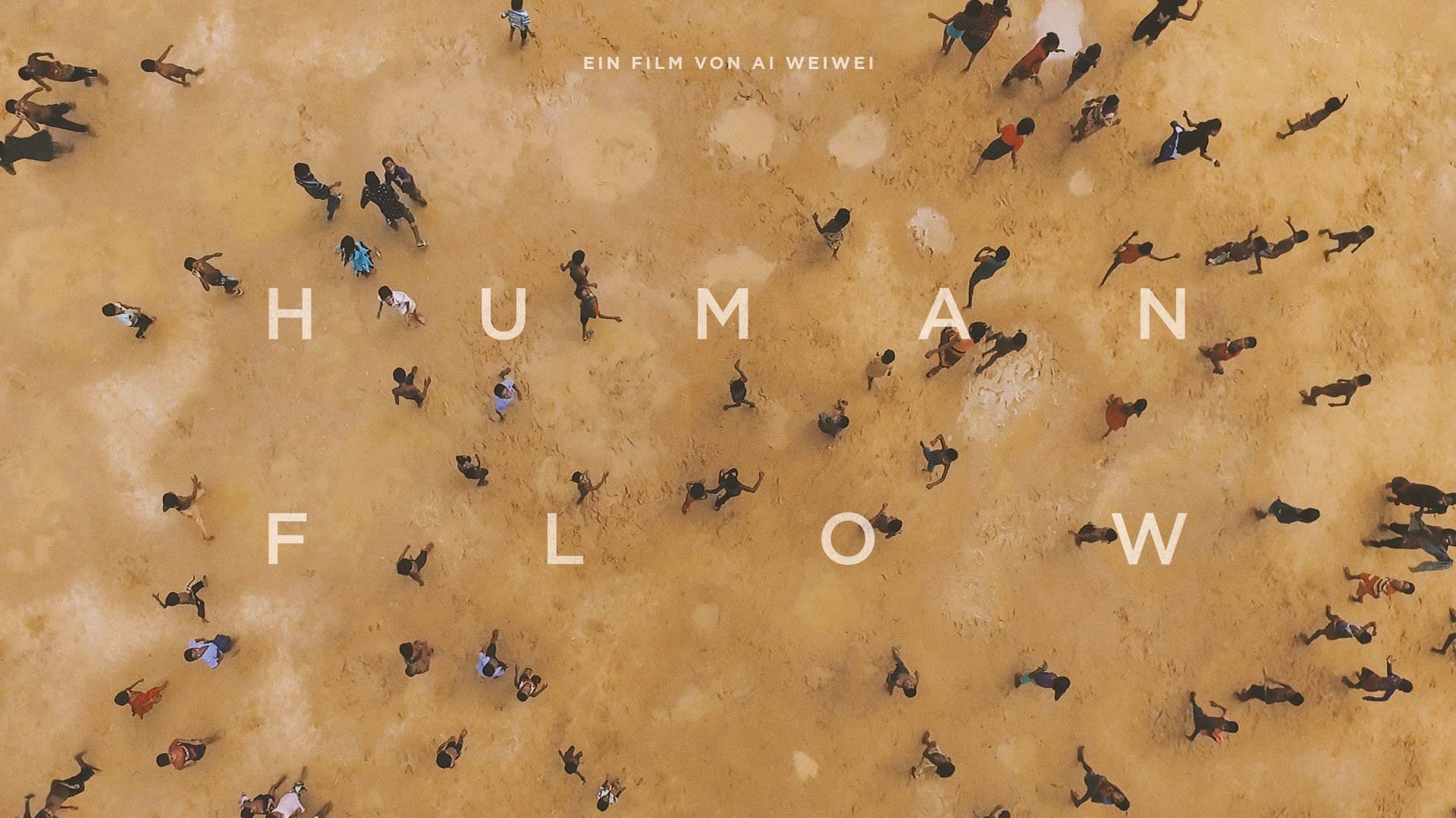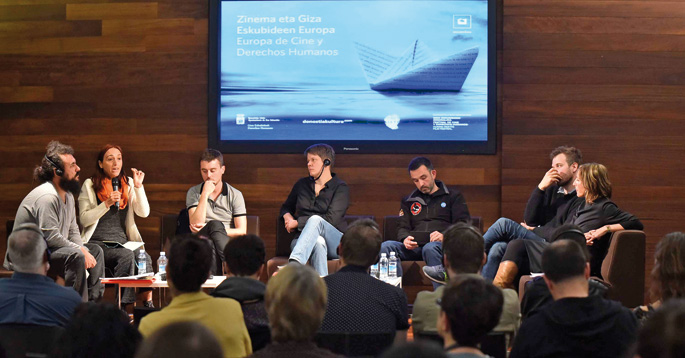It will not stop any more
- The 16th Human Rights Congress of Donostia-San Sebastián Film Festival of San Sebastian. Films: Human Flow (Ai Weiwei) and The Dance of the Years (Ados Teatroa). 20 April at the Victoria Eugenia Theatre in Donostia-San Sebastián.

This is Friday night in Donostia-San Sebastián. The 16th Human Rights Congress of Donostia-San Sebastian You've addressed the Film Festival, you've crossed the Kursaal Bridge, you've tied yourself to a bike barrier and you've got into the Victoria Eugenia. Amnesty International's yellow vest man has handed you a hand sheet in favor of the freedom of activists Taner Kiliç and Idil Eser, and you've waited for the performance reading that.
Begoña del Teso has burst into the stage without delay. He knows that they await with their 144 minutes the documentary of Ai Weiwei Human Flow, with the impressive promised images. According to Del Teso, you do not know, however, that the true protagonists of the night are in the short film, in the work of Ados teatroa The Dance of the Years (Urteko dantza). They ended the day before, and Del Teso says that if it was a celluloid it could still be moist. The project addresses the exclusion of older people through dance and, finally, has moved you.
Applause, and now yes, Human Flow begins. What you know beforehand is: Chinese artist and filmmaker Weiwei has been working on refugees and migration in 23 countries for two years: Syria, Afghanistan, Bangladesh, Turkey, Iraq, Mexico, Kenya, Greece, Kurdistan, Italy, Palestine -- and, last, one of the group's photographers, Yasser Murta, killed a few weeks ago. There is hardly any margin for fiction. The spectacular images captured with the drones have immediately flooded the room, however, without novelties; the director has searched for the bodies and voices of the tragedy, but it seems that he has filled them with superficial stitches. Weiwei has also appeared before the camera since the first minutes of his career, which is very questionable. You've stood with two figures and will live in you today: a woman who turns her back to the camera, who speaks and vomits with the drowning of pain, and a blackened, hushed cow, swinging in the deserted streets under a burning sky.
People were dropping by drop out of the room, getting more and more empty to realize. You also have a long history. You say that it can be something sought so that for a while your time approaches the weight of the time of the condemned to a criminal place. And it seemed to you that, even if everybody left, the projection could continue there, like a mass of people who are being continuously shifted by force, ceaselessly, endlessly.
But the 144 minutes have been exhausted. You have left here at one and a half in the morning, and what is presented to you in the face of burning eyes is San Sebastian, the sky does not burn, there are no camps in sight. As the bike is released from the fence, the laughs of those in the glasses come from the adjacent terrace. And you would want to believe that you're not the same as before you were put in a hundred percent.
Sari nagusia, Ikusleen Saria, lortu du Chiara Andrich eta Giovanni Pellegrini italiarren Bring the Sun Home dokumentalak, Donostiako Giza Eskubideen XIII. Zinemaldian.















